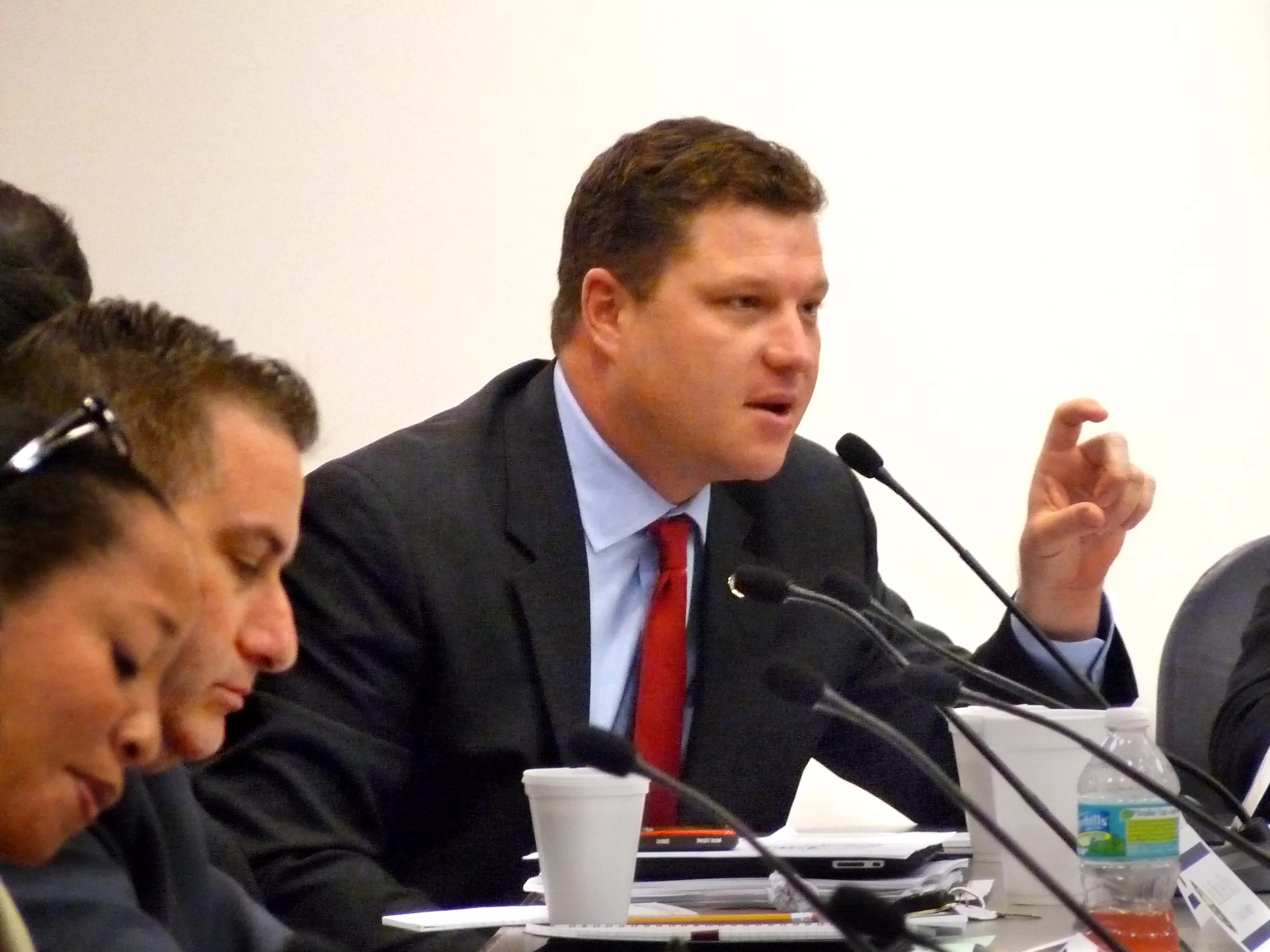
Florida House of Representatives

Audio By Carbonatix
Smartphones in 2018 are necessary, ubiquitous devices that function as GPS location trackers, cameras that follow us into the bathroom, private-communication-logging devices, business computers, and, let’s be honest, porn-streaming screens. Yet there are still bizarrely few laws banning cops from swiping highly personal phone data without your consent or just cause.
Last Friday, Florida Sen. Jeff Brandes, a St. Petersburg Republican, filed a bill that proposes to place a series of legal barriers between law enforcement and your digital footprint. Brandes’ bill would force cops to obtain warrants before monitoring your
“The Legislature recognizes that the use of portable electronic communication devices is growing at a rapidly increasing rate,” the bill reads. “These devices can store, and encourage the storing of, an almost limitless amount of personal and private information. Often linked to the Internet, these devices are commonly used to access personal and business information and databases in computers and servers that can be located anywhere in the world.” (Florida Politics first reported on the bill last week.)
Brandes filed a similar bill last year that failed. Florida cops currently don’t need a warrant to search or track your phone. This is odd, because it’s long been illegal in Florida to record a private conversation without the consent of all parties involved.
Brandes is a Republican with a definite libertarian streak. Though he supports Governor-elect Ron Desantis – the human equivalent of a Confederate flag-shaped Jell-O mold made by a racist grandmother – Brandes has also won honors from the Florida American Civil Liberties Union for consistently filing bills limiting local cops’ ability to search people without proper justification. None of this excuses Brandes’ very bad opinions about guns, the Florida public school system, border security, or the unbearable “Libertarian Christmas” video he posted on December 25, but we digress:
A Very Libertarian Christmas- Deck the halls and spread some Yuletide cheer. Or don't. You're your own person. https://t.co/OJpgX0nBuo
— Jeff Brandes (@JeffreyBrandes) December 23, 2018
Scores of articles have been written regarding police use of StingRay devices, which cops can employ to track the location of your cell phone and, in many cases, intercept your calls or communications. The technology was developed for U.S. military use in war zones. The trackers were then sold to cops to use on American citizens. New Times in 2012 confirmed the Miami-Dade County Police Department was using StingRay devices; at this point, it’s safe to assume most large and medium-size police forces have the technology. In 2009, the Broward Sheriff’s Office charged a drifter with murder after using a StingRay device to trace his cell phone. BSO did not have a warrant.
The concept of cell-phone tracking remains controversial. Many rights groups, such as the ACLU, argue it’s usually unconstitutional for cops to search your private data without a warrant or your permission. But cops do it anyway and often wind up getting sued. (The U.S. Supreme Court has in some cases held that cops need a warrant before tracking your phone.) Senator Brandes’ bill, if it becomes law, would basically put that debate to rest in Florida and codify your right to control your cell data. The proposal, which will likely be heard during the legislative session that begins March 5, would force cops to explain why they plan to surveil someone and for how long. After 45 days, surveillance would be banned and cops would be forced to notify those who have been tracked.
“The user of a portable electronic communication device has a reasonable and justifiable expectation of privacy in the information that these devices contain,” the bill reads.